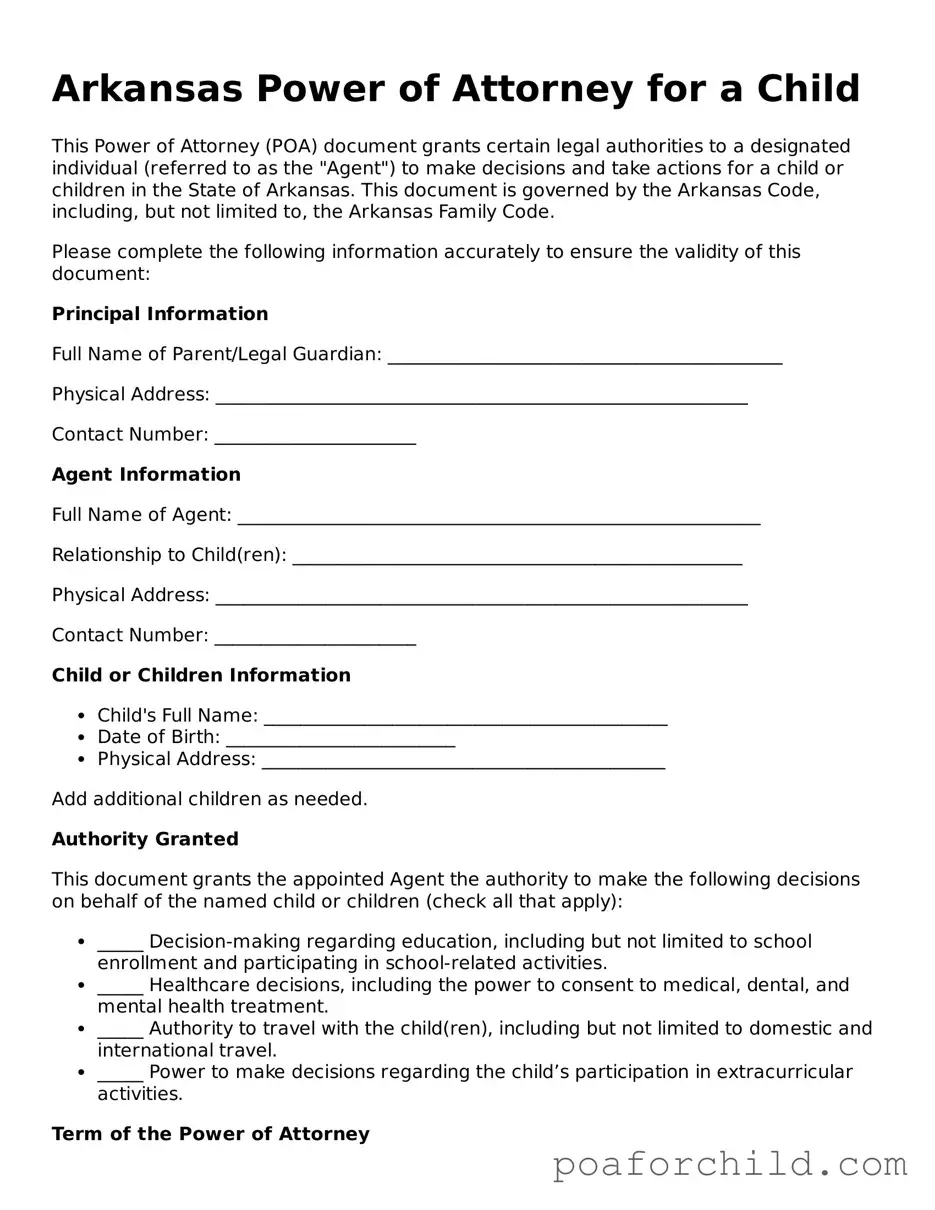Detailed Guide for Using Arkansas Power of Attorney for a Child
Filling out the Arkansas Power of Attorney for a Child form is an important legal process that allows a parent to grant another adult the authority to make decisions on behalf of their child under certain circumstances. It's crucial to ensure that every piece of information you provide is accurate and clearly written to avoid any misunderstandings or legal issues. The form is designed to give temporary decision-making authority and care of a minor child to someone other than the parent. Here are the steps to correctly fill out the form:
- Begin by downloading the most current version of the form from a reliable source to ensure you have the correct document for the State of Arkansas.
- Enter the full legal names of the child or children concerned in the designated area.
- Provide the full legal name(s) of the parent(s) or current legal guardian(s) granting the power of attorney.
- Fill out the information of the appointed individual, including their full legal name, relationship to the child, and contact details.
- Specify the exact powers being granted to the appointed individual. This includes the authority to make educational decisions, medical decisions, or both, and any limitations to these powers.
- If there are specific instructions, conditions, or limitations to the powers granted, make sure to clearly document these on the form.
- Clearly indicate the effective date of the power of attorney and its duration. Remember, the power of attorney cannot extend beyond one year in Arkansas unless otherwise provided by law.
- Have the parent(s) or legal guardian(s) sign the form in front of a notary public. The notarial witness is essential for the document’s legality.
- Ensure the appointed agent also signs the form, if required, acknowledging their acceptance of the responsibilities granted.
- Keep multiple copies of the notarized document. Provide one to the appointed individual, keep one for personal records, and consider providing a copy to the child’s school, physician, or any other relevant party.
After completing the form, it's vital to understand that this document does not permanently transfer parental rights. It serves as a temporary measure for situations where the parent(s) are unable to care for their child. Should circumstances change or the period specified in the document expire, it's the responsibility of the parent(s) or legal guardian(s) to either renew the document or officially terminate the powers granted. Always consult with a legal professional if you have any doubts about how to proceed before, during, or after the process.
